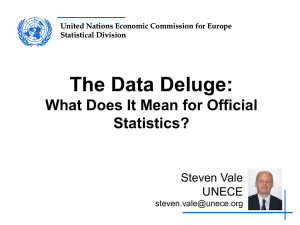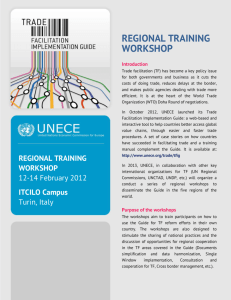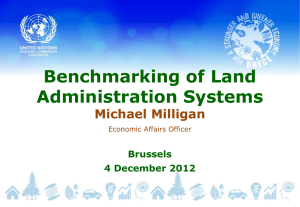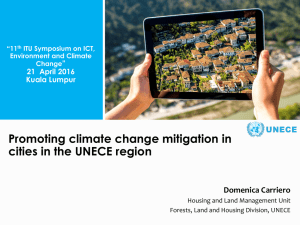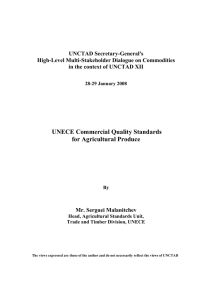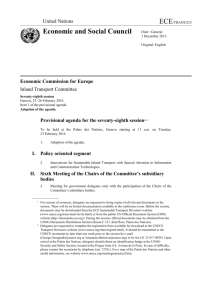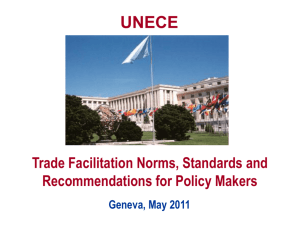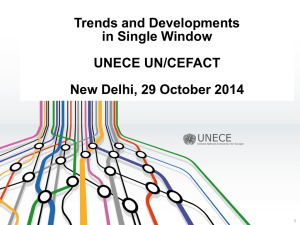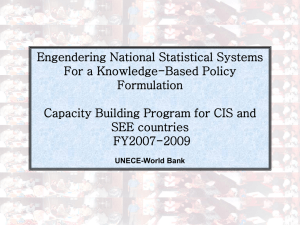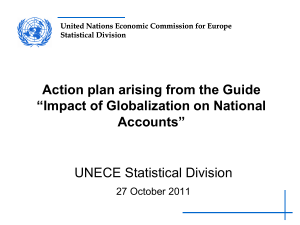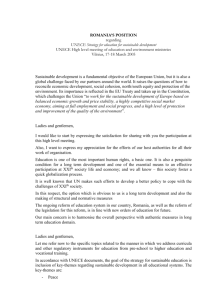About TFIG
advertisement
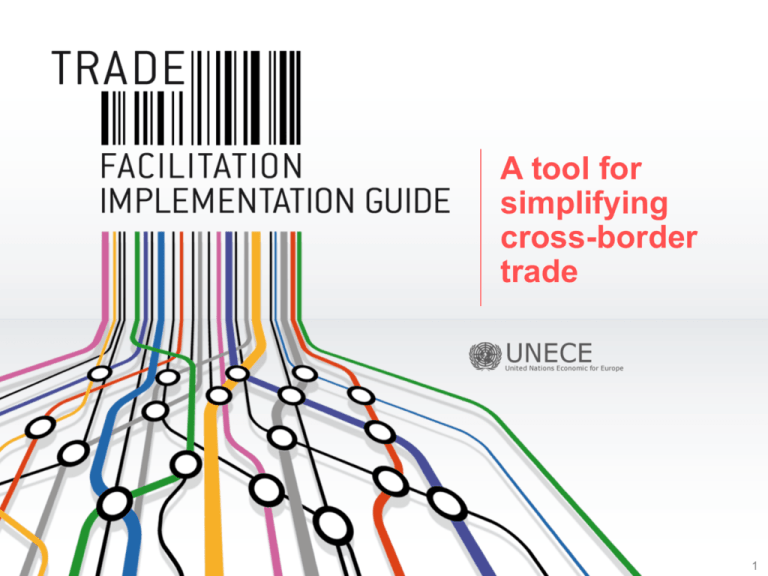
A tool for simplifying cross-border trade 1 The UNECE Trade Facilitation Implementation Guide (TFIG) Developed by UNECE, with the support of UN/CEFACT, and funds from Sida (Swedish International Development Corporation Agency) 2 ABOUT THE GUIDE Purpose: • To present concepts, standards and recommendations that can simplify trade throughout the international supply chain, along with implementation approaches and methodologies. Target: • Policy makers and high level managers • Implementers and technical experts ….from governments, businesses and international organizations Format: • A web-based interactive tool • In a wikipedia style (with entry points and cross links to navigate contents) Key milestones: • Sept 2011: launch of the project • May 2012: final draft • Jun 2012: graphic design, editing • Jul-Aug 2012: peer review • Sept 2012: online publication • Oct 2012: translation into French and Russian 3 CONTENTS OF THE WIKI Why How • About TF: principles and benefits • Suggested Itineraries: 1. Reducing border delays, 2. Documents simplification and data harmonisation; 3. Creating partnership with trade; 4. ICT application; 5. WTO negotiations,.... • Domains: Where With what Business: Purchasing, Shipping and Transport, Customs & Cross Border Management, Payment & Trade Finance Approaches and Methodologies: Generic Approach to TF implementation, Business Process Analysis, Consultation_Collaboration, E-Trade Data Interchange • Instruments Conventions, Standards and Recommandations, Guides, Case Stories Who • Organisations UNECE – UN/CEFACT, UNESCAP, WTO, UNCTAD, ITC, WCO, etc. 4 ABSTRACT VIEW OF THE WIKI • • A collection of self-contained pages Following a standard tempate (where possible): – definition, process, relevance to TF, implementation guidance, benefits, references 5 NAVIGATING THE WIKI • That users can navigate through: 6 LINKAGES • Let’s think of linkages: Itineraries for establishing meaningful relationships between various wiki contents LINKAGES (cont’d) • Let’s think og linkages: instruments, organisations, case stories, further readings, 9 10 Context of TF negotiations 11 12 TRAINING WITH THE GUIDE The training package: • Developed for workshops based on TFIG (UNECE, other Regional Commissions, UNCTAD, etc.) • Serves as a guiding template for a three day workshop on the guide Target: • International/national experts training on TF • Users of the guide Learning objectives: • Analyse learning needs • Develop training sessions • Use participatory knowledge sharing methodologies • Valuate achieved learning results and track impact Tools: • A one to three days wokshop agenda (depending on needs) • A learning needs analysis tool • A facilitator's notes checklist • Powerpoint presentations based on domains and itineraries 13 MANAGING THE PROJECT Management Framework • UNECE secretariat manages the project • UN/CEFACT PT provides technical advice • A group of 7 consultants, coordinated by a lead technical consultant, drafts the contents • The ITC ILO for the web layout &functionalities, and for instructional design Working methodology • A project wikispace • Two drafting workshops • Teleconferences (webex) on a regular basis What’s next • Launch and promotion of the Guide – Sept 2012 • Use of the Guide in capacity building activities (six regional workshops in 2012/2013, UNECE-UNCTAD joint training) • Maintenance/update of the Guide contents 14 Thank you! For more info: Tom Butterly and Maria Teresa Pisani Global Trade Solutions Section, UNECE www.unece.org/trade/tfig tfig@unece.org 15

